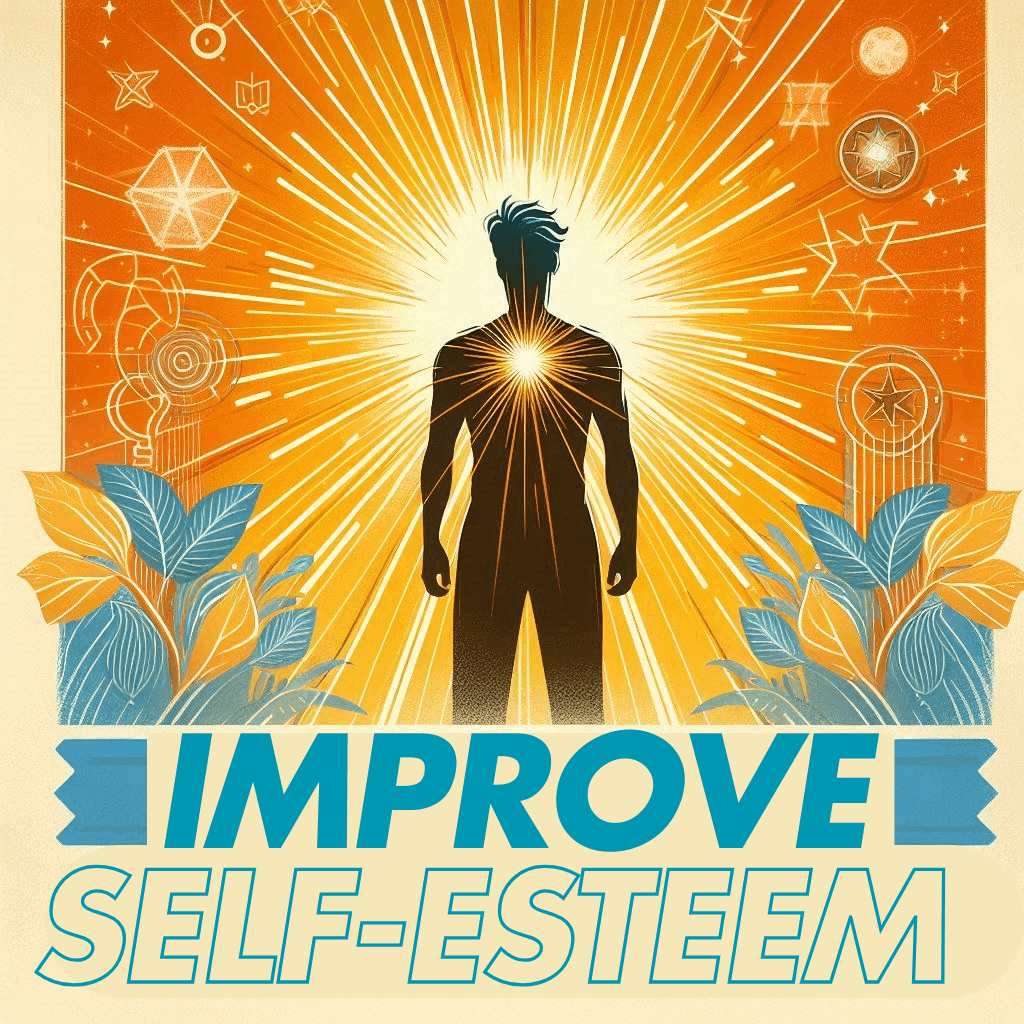Self Esteem is how we value and perceive ourselves. It is based on our opinions and beliefs about ourselves, which can feel difficult to change. It is an important aspect of our psychological health and overall well-being. High self-esteem enables us to achieve our goals confidently. In contrast, low self-esteem leads to a variety of mental health issues, that can include anxiety and depression. There are a number of strategies that you can use to enhance your self-esteem if you are struggling with self-esteem related issues. This article contains the practical ways through which you can improve your self-esteem by including both psychological and operative awareness.
Understanding Self-Esteem
Self-esteem refers to the beliefs we hold about ourselves, our worth and capabilities. Self-esteem can be broken down into two main components:
- Self-Confidence: This includes the belief in your abilities and skills. You are more likely to take challenges when you feel efficient and capable about yourself. This helps you pursue greater opportunities.
- Self–Respect: This includes the kind and compassionate value and treatment that you give yourself. It involves the recognition of your basic worth, independent of external achievements.
Strategies to Improve Self Esteem
Following given are a number of strategies for improving self-esteem:
Practice Self-Compassion
Self-compassion is one of the most effective ways to improve self-esteem. This step involves treating yourself with the same kindness you treat everyone else. Instead of losing anger on yourself for mistakes, you should practice to understand forgiveness. You can consider these steps:
Acknowledge Your Feelings: You should accept that you have negative feelings without any judgement. It is completely fine to feel down sometimes.
Practice Mindfulness: Stay aware of your thoughts and feelings without getting overwhelmed. Doing meditation can be a helpful tool.
Encourage Yourself: Use positive words to support a kind internal dialogue. Phrase like “I am doing my best” can help to shift your mindset.
Set Realistic Goals
Setting goals that are achievable can significantly help to improve your self-esteem. Accomplishing even the smallest task, creates a sense of achievement that boost your confidence. You can follow these steps:
Start Small: Always break down your larger goals into manageable and achievable steps. Completing even the smallest task builds momentum and encourages you to opt for bigger challenges.
Be Specific: Instead of unclear goals. Always define clear and specific goals. These can include tasks like: “to get fit”, “exercise for 30 minutes”, or any other task you like.
Celebrate Success: After achieving something, always celebrate and acknowledge it, no matter how minor it is. This will support a positive self-image and will motivate you to keep going.
Challenge Negative Self-Talk
Negative tasks about yourself can be harmful for your self-esteem. To combat this, you can try the following techniques:
Identify Negative Thoughts: You should always pay attention to your inner thoughts. Writing down your negative thoughts when they occur can be helpful in this way.
Reframe Your Thoughts: Once you identify your negative thoughts, then challenge them. See if they are based on facts or on unfounded beliefs. You should replace them with positive and balanced thoughts.
Practice Gratitude: You can maintain a gratitude journal and write down your qualities that you admire. By checking them regularly can help you forget about the negative thinking and allow you to appreciate yourself.
Surround Yourself with Supportive People
Your company always influences your self-esteem. Its better to surround yourself with positive and supportive individuals who uplift you. You can consider these strategies:
Evaluate Relationships: Reflect on your current relationships. Remove the toxic and non- supportive people.
Seek New Connections: You can participate in social activities that match your interests. This will help you to meet like-minded people who will help to encourage you.
Limit Exposure to Negativity: Reduce your exposure with toxic people. Instead, search for relationships that promote positivity and growth.
Engage In Activities You Enjoy
pursuing activities that bring you joy and fulfillment can enhance self-esteem. Engaging in hobbies or interests allows you to express yourself and discover new strengths. Here’s how to incorporate this into your life:
Explore New Interests: Don’t be afraid to try new things. This could be anything from painting to hiking or learning a musical instrument.
Make Time for Fun: Schedule regular time for activities you love. Prioritizing joy can counterbalance stress and promote a positive self-image.
Volunteer: Helping others can provide a sense of purpose and fulfillment. Volunteering can also remind you of your strengths and impact on the community.
Conclusion
Improving self-esteem is a continuous process that includes patience and dedication. By practicing all the above given strategies, you can prepare a healthy self-image. You should always keep in mind that everyone has their own unique strength and qualities that contribute to their worth. You should always take a step towards self-acceptance, as this will make your self-esteem improve.
Frequently Asked Questions (FAQs)
1. Can self-esteem be improved overt time?
Yes absolutely! Improving self-esteem is a gradual process. With consistent effort, self-compassion, and the implementation of positive strategies, you can foster a healthier self-image and boost your self-esteem over time.
2. What is self-esteem?
Self-esteem refers to the beliefs and feelings we have about ourselves, encompassing our self-worth, confidence, and respect for ourselves. It influences how we think, feel, and behave in various situations.
3. Why is self-esteem important?
High self-esteem is crucial for overall mental health and well-being. It affects our ability to take on challenges, maintain healthy relationships, and make positive life choices. Low self-esteem can lead to anxiety, depression, and a lack of motivation.
4. What role do relationships play in self-esteem?
The people we surround ourselves with significantly impact our self-esteem. Supportive and positive relationships can boost our self-worth, while toxic or critical relationships can undermine it. Focus on nurturing relationships that uplift you.
5. What activities can help to improve my self-esteem?
Engaging in hobbies, volunteering, or pursuing interests you enjoy can enhance your self-esteem. These activities provide a sense of accomplishment and allow you to express yourself.
Found this helpful? Don’t miss out on our other great articles!



